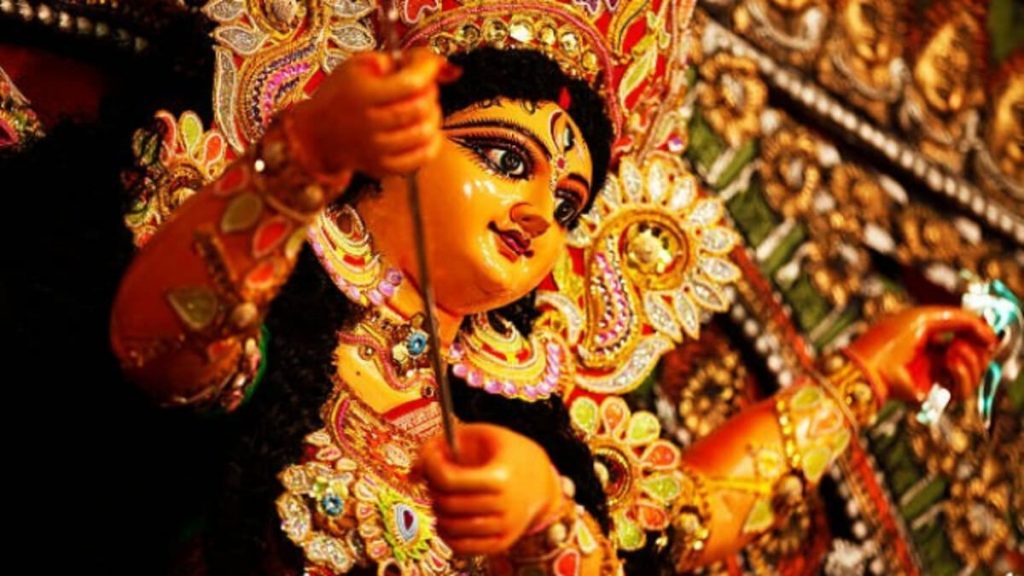Shardiya Navratri is one of the most joyous Hindu festivities, and celebrations take place throughout India with tremendous grandeur and fervour. Shardiya Navratri is a nine-day celebration honouring Maa Durga and her nine incarnations, or Navdurga.
Each incarnation of the goddess is celebrated by her followers throughout the festival’s nine days. Starting on October 15th, this year’s Shardiya Navratri will continue till Dussehra (also known as Bijaya Dashami) on October 24th.
History
During Navratri, Hindus worship Devi Durga, the goddess who vanquished Mahishasura.
Mahasura was immortalised by Lord Brahma, a stronger God, for his devotion. This blessing had one condition: only a woman could vanquish Mahishasura. The deal satisfied Mahishasura, who didn’t believe any woman could kill him.
Mahishasura and his troops became stronger and stronger throughout the years, becoming an unstoppable force that attacked Earth. Finally, the three most powerful Hindu deities agreed to band together and create the Goddess Durga, a woman whose mission would be to wipe out Mahishasura.
For 10 days, the Goddess Durga battled a devil that constantly changed appearances to throw her off. Once he assumed the form of a buffalo, though, Devi Durga was able to kill him.
Significance of Nine Days’ Nine Colours
All nine days of the celebration are given a different colour and their significance, and it is thought that dressing in line with the same is lucky. Furthermore, each colour represents a different virtue.
Day 1 – Orange (October 15)
On this day, those who wear orange exude infectious enthusiasm and warmth. This is an uplifting colour that spreads positivity.
Day 2 – White (October 16)
White, the colour of innocence and purity, will be the theme for that day. It is also a symbol of wisdom, insight, and enlightenment.
Day 3 – Red (October 17)
The colour red, which is symbolic of love and ardour, is the most often presented to the goddess. The wearer of this colour will feel revitalised and energised.
Day 4 – Royal Blue (October 18)
The colour of the day is royal blue, which is a symbol of reliability and power. Additionally, it stands for refinement, majesty, and royalty.
Day 5 – Yellow (October 19)
Yellow, the colour of sunshine and hope, will be day 5’s featured hue. It’s also a symbol of joy, merriment, and brilliance.
Day 6 – Green (October 20)
Green, the colour of nature’s harmony and progress, is the day’s chosen shade. In addition, it stands for concord, mother nature, and new life.
Day 7 – Grey (October 21)
Day 7’s featured tone is grey, the colour of understatement and mystery. It’s a metaphor for the immensity of space and the strength to persevere in the face of adversity.
Day 8 – Purple (October 22)
The colour purple is often linked with royalty and luxury. Purple devotion of Navdurga is thought to bring material success and good fortune.
Day 9 – Peacock Green (October 23)
Peacock green, a symbol of variety and plenty, is the colour of the day. It also represents the grandeur, beauty, and power of nature in all its forms.
Shardiya Navratri has its origins in Indian mythology. It was at this time when the nine incarnations of Durga, the Hindu goddess of strength, are said to have appeared.
During the Durga puja festival, attendees pay homage to the goddess in her nine guises. The festival also celebrates the triumph of good over evil by honouring Goddess Durga’s defeat of the devil Mahishasura.

